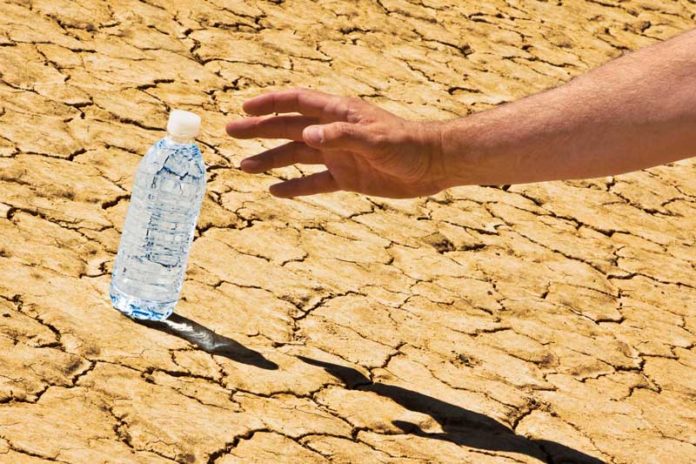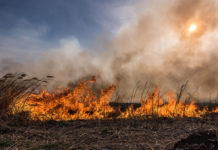When he is not managing the beverage company he works for, Jason Story relaxes by working in his home garden – tilling the soil, weeding the earth and growing vegetables like beets and spinach for the dinner table.
And to water his Denver, Colorado garden, Story bought a barrel to collect rain running out through the downspout of his house gutter system. Colorado has been dealing with a water shortage and he thought it would be a good way to water his garden without drawing it from the municipal water system.
He was wrong.
Under Western water rules where his home sits, raindrops belong to the government and using a barrel to collect water for his garden is tantamount to stealing making him a scofflaw subject to daily fines that could bankrupt him if they are assessed and collected.
In fact, Colorado’s water rules are stricter than those of California – a state that’s experiencing its worst drought in decades. California, which is arguably the nation’s fruit and vegetable basket, fields are browning under a merciless sun as depleted reservoirs across the region try to meet the water needs of both agriculture and personal use.
Moreover, while California is trying to limit private water use with moratoriums on watering lawns, filling swimming pools and serving water without asking at restaurants, Colorado has taken a much harder stand. Under Colorado law, regulators can impose a fine of $500 a day to anyone caught diverting rainwater for personal use.
When legislators tried to change the law to allow homeowners to harvest the rain that falls on their lands last spring, entrenched rules that allocate Western water to those who have first claim to it got in the way.
Doug Kenney, director of the Western Water Policy Program at the University of Colorado Law School says:
“Water allocation doesn’t satisfy most people’s norms of fairness…” “A lot of people are clearly surprised to see that it’s a system where some people will get 100 percent of their water, and others will get zero.”
In Colorado, the rain barrel idea had bipartisan support and would have allowed homeowners to buy two 55-gallon water tanks and collect up to 650 gallons every year – the amount an average American uses in a week.
But irrigation officials and politicians representing ranchers on the state’s eastern plains saw the proposal as a threat to property rights and the water principles written into the State Constitution.
State Senator Jerry Sonnenberg called water collection “stealing” and voted against the rain barrel idea when it came up in the state Agriculture, Natural Resources and Energy Committee he leads.
“You might say, it’s a little bit of water, just a barrelful, how much damage could that do to someone downstream?” “If it’s just a little bit, why wouldn’t we allow everyone go to into 7-Eleven and take just one bottle of water, just a little bit?”
Based on this reasoning, millions of gallons of water could be pulled out of the system if the entire state caught rain-barrel fever.
Regardless of Mr. Story’s minimal request to collect rainwater falling on his property, Colorado’s Constitution and years of legal precedent have established that the hierarchy of water stems from when a farmer, public agency, company or other user draws water from the system.
Just because water flows across a person’s property – be it a river or a trickle of rainwater – does not mean the person owns it, water officials said.






























